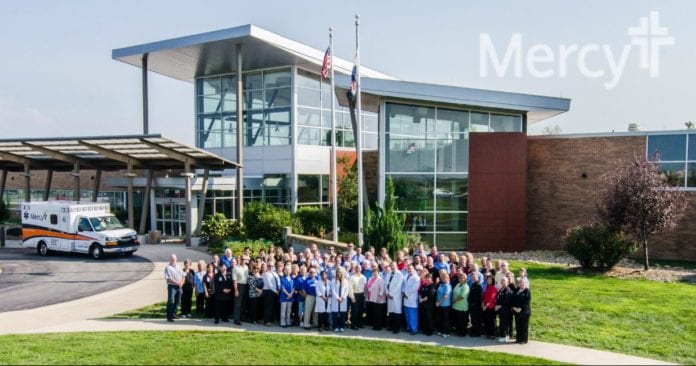Mercy in the lead for fourth year for quality of care and patient safety
Shorter hospital stays, fewer complications and better patient results are just a few metrics used to rank Mercy as one of the top five large health systems in the nation, alongside Mayo. The 2019 IBM Watson Health 15 Top Health Systems study recognizes five large, five medium and five small systems from 337 health systems and 2,961 hospitals across the U.S.
“For the fourth year in a row, we have been named one of the top five large health systems in the nation for the medical care we provide to our communities,” said Dr. Keith Starke, senior vice president and top quality officer for Mercy. “Mercy is very focused on the quality of care we provide our patients, and we’ve made significant strides in reducing both health-care associated infections and surgical complications. For patients, it means we prevent unnecessary suffering, and they go home healthier and sooner.”
Watson Health, an IBM company, produces the only study of its kind to combine rigorous analysis of individual hospital performance metrics into system-level data, identifying the best health systems in the nation. This annual, quantitative scorecard uses objective, independent research and public data sources. Health systems do not apply for consideration, and winners do not pay to market their award.
The study shows that Mercy outperformed peers in the following ways:
- Saved more lives and caused fewer patient complications
- Lower cost of care
- Readmitted patients less frequently
- Shorter wait times in emergency departments
- Shorter hospital stays
- Better patient safety
- Higher patient satisfaction
Some of the keys to improving the quality of patient care have included efforts made possible because of Mercy’s dedicated team, leading technology and best practices:
Mercy was among the first health care organizations in the U.S. to have an integrated electronic health record (EHR) connecting all points of care. With a finely-tuned EHR, clinical best practices can be hard-wired into the system, resulting in triggers that warn of possible complications at very early stages, as well as data that can help reduce variation and improve compliance.
With more than 2,000 integrated physicians – one of the largest medical groups in the nation – Mercy brings primary care and specialty doctors together to implement proven, clinical-based best practices to improve patient care.
Specialty councils, made up of physicians, nurses and clinicians, represent more than 40 areas of medicine, providing science-based care for everything from heart surgery to the delivery of babies.
“We are honored once again to be ranked among the top hospital systems in the nation, and we applaud the efforts of our 45,000 co-workers who together provide quality care and ensure patient safety across Mercy,” said Lynn Britton, president and CEO of Mercy.















